-
 Bitcoin
Bitcoin $114400
0.68% -
 Ethereum
Ethereum $3550
2.48% -
 XRP
XRP $3.001
4.99% -
 Tether USDt
Tether USDt $0.9999
0.01% -
 BNB
BNB $757.6
1.46% -
 Solana
Solana $162.9
1.07% -
 USDC
USDC $0.9998
0.00% -
 TRON
TRON $0.3294
0.91% -
 Dogecoin
Dogecoin $0.2015
2.46% -
 Cardano
Cardano $0.7379
2.01% -
 Stellar
Stellar $0.4141
8.83% -
 Hyperliquid
Hyperliquid $37.83
-1.91% -
 Sui
Sui $3.454
0.76% -
 Chainlink
Chainlink $16.62
3.53% -
 Bitcoin Cash
Bitcoin Cash $554.6
2.84% -
 Hedera
Hedera $0.2486
3.91% -
 Ethena USDe
Ethena USDe $1.001
0.00% -
 Avalanche
Avalanche $21.95
3.34% -
 Toncoin
Toncoin $3.563
-2.85% -
 Litecoin
Litecoin $112.7
2.65% -
 UNUS SED LEO
UNUS SED LEO $8.977
0.13% -
 Shiba Inu
Shiba Inu $0.00001232
1.85% -
 Uniswap
Uniswap $9.319
2.93% -
 Polkadot
Polkadot $3.632
1.38% -
 Monero
Monero $307.2
2.36% -
 Dai
Dai $0.9997
-0.03% -
 Bitget Token
Bitget Token $4.340
0.91% -
 Pepe
Pepe $0.00001048
1.07% -
 Cronos
Cronos $0.1348
3.26% -
 Aave
Aave $261.5
1.93%
How to solve the tax problem of NFT artworks?
NFT tax implications vary by jurisdiction and transaction type; capital gains taxes apply to profits, necessitating detailed record-keeping of purchases, sales, and fees. Consult a crypto-savvy tax professional for accurate reporting and compliance.
Mar 10, 2025 at 06:56 pm
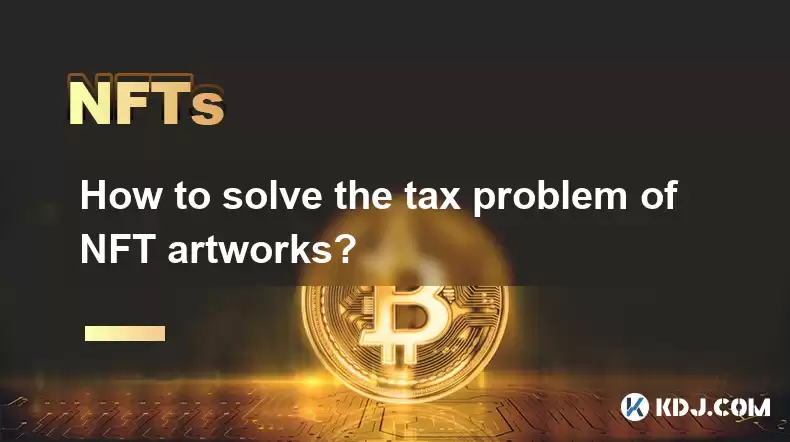
Key Points:
- Understanding the tax implications of NFTs depends heavily on your jurisdiction and how you acquired and disposed of the NFT.
- Capital gains taxes are typically applied to profits made from selling NFTs.
- Record-keeping is crucial for accurate tax reporting. Detailed records of purchases, sales, and associated fees are essential.
- Consulting a tax professional specializing in cryptocurrency and NFTs is highly recommended.
- The tax treatment of NFTs can vary significantly depending on whether they are considered collectibles, securities, or other assets.
How to Solve the Tax Problem of NFT Artworks?
Navigating the tax landscape of Non-Fungible Tokens (NFTs), especially NFT artworks, can be complex. The lack of clear, universally accepted guidelines adds to the challenge. However, understanding the basic principles and best practices can help minimize tax-related headaches.
First, it's crucial to determine your jurisdiction's tax laws. Tax regulations concerning NFTs are still evolving globally. What applies in the US might differ significantly from the rules in the UK or Japan. This necessitates researching the specific tax laws relevant to your location.
Next, consider how you acquired the NFT. Was it purchased directly from a marketplace, received as airdrops, or obtained through mining or staking? The method of acquisition impacts how the asset is treated for tax purposes. For example, airdropped NFTs might have different tax implications compared to purchased ones.
Let's focus on the most common scenario: selling an NFT artwork. Generally, profits from selling an NFT are considered taxable events. This means you'll likely owe capital gains taxes on the difference between the selling price and your original cost basis (including any associated fees). The cost basis encompasses the purchase price, gas fees, and any other expenses incurred.
Accurate record-keeping is paramount. Maintain meticulous records of all your NFT transactions. This includes:
- Purchase date and price: Note the exact date and amount paid for each NFT.
- Selling date and price: Similarly, record the date and amount received upon selling.
- Transaction fees: Document all fees associated with buying and selling, including gas fees and marketplace fees.
- Wallet addresses: Keep track of all relevant wallet addresses involved in the transactions.
- Proof of ownership: Maintain proof of ownership for each NFT. This could include screenshots of transactions or blockchain explorers.
The classification of your NFT artwork also influences its tax treatment. Depending on its characteristics and intended use, it might be classified as a collectible, a security, or another type of asset. The tax implications will vary based on this classification. For instance, collectibles might have different tax rates compared to securities.
Calculating your capital gains requires careful consideration of all expenses. This isn't just the purchase price; it includes any expenses directly related to improving or maintaining the NFT's value. Consult a tax professional to ensure you accurately account for all relevant costs.
Understanding the difference between short-term and long-term capital gains is essential. Generally, assets held for less than a year are subject to short-term capital gains taxes, while those held for longer periods are subject to long-term capital gains taxes, which often have lower rates.
The use of NFTs also plays a role. If you use NFTs in your business, the tax implications could differ significantly from those involving personal investment. Business use often involves deductions and different tax classifications.
For complex scenarios, such as NFTs received as compensation or used in staking activities, specialized tax advice is crucial. The nuances involved can be difficult to navigate without professional assistance.
Remember, tax laws are constantly evolving. Staying informed about the latest regulations is vital for ensuring compliance. Regularly review your tax obligations and consult professionals as needed.
Frequently Asked Questions:
Q: Do I need to pay taxes on every NFT transaction?
A: Generally, yes, you'll likely owe taxes on profits from selling NFTs. However, the specific tax implications depend on your jurisdiction and the circumstances of the transaction. Some jurisdictions may have different rules for airdropped NFTs or those received as compensation.
Q: What if I lose money selling an NFT?
A: In many jurisdictions, you can deduct capital losses from capital gains, potentially reducing your overall tax liability. However, the specific rules regarding capital loss deductions vary by jurisdiction. You should consult with a tax professional to determine how to report and claim these losses.
Q: How do I prove my NFT ownership for tax purposes?
A: Maintain thorough records of your transactions. This includes screenshots of purchase and sale confirmations, blockchain explorer records showing your wallet address and ownership, and any other documentation that proves your ownership.
Q: Are there any tax benefits for holding NFTs long-term?
A: Yes, in many jurisdictions, long-term capital gains are taxed at lower rates than short-term capital gains. Holding an NFT for over a year (the specific timeframe varies by jurisdiction) can lead to potential tax savings.
Q: Should I use a tax professional specializing in cryptocurrencies?
A: It's highly recommended, especially for complex situations involving multiple transactions, business use of NFTs, or significant gains. NFT tax laws are evolving rapidly, and a specialist can ensure you comply with all applicable regulations.
Disclaimer:info@kdj.com
The information provided is not trading advice. kdj.com does not assume any responsibility for any investments made based on the information provided in this article. Cryptocurrencies are highly volatile and it is highly recommended that you invest with caution after thorough research!
If you believe that the content used on this website infringes your copyright, please contact us immediately (info@kdj.com) and we will delete it promptly.
- Cryptocurrency, Altcoins, and Profit Potential: Navigating the Wild West
- 2025-08-04 14:50:11
- Blue Gold & Crypto: Investing Disruption in Precious Metals
- 2025-08-04 14:30:11
- Japan, Metaplanet, and Bitcoin Acquisition: A New Era of Corporate Treasury?
- 2025-08-04 14:30:11
- Coinbase's Buy Rating & Bitcoin's Bold Future: A Canaccord Genuity Perspective
- 2025-08-04 14:50:11
- Coinbase's Buy Rating Maintained by Rosenblatt Securities: A Deep Dive
- 2025-08-04 14:55:11
- Cryptos, Strategic Choices, High Returns: Navigating the Meme Coin Mania
- 2025-08-04 14:55:11
Related knowledge
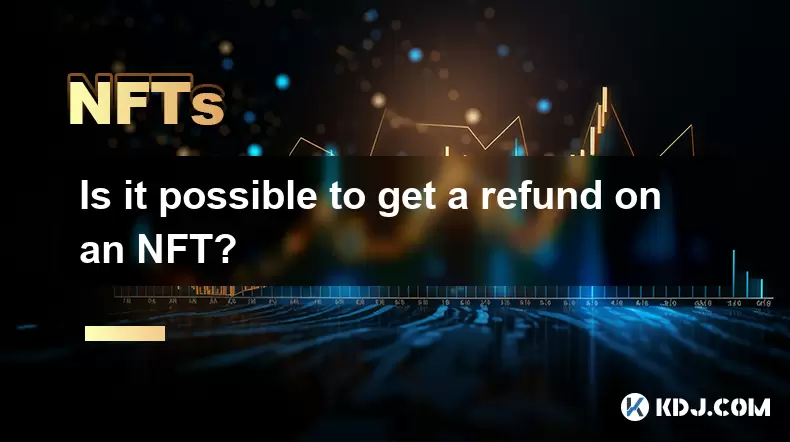
Is it possible to get a refund on an NFT?
Jul 21,2025 at 08:35pm
Understanding NFT Transactions and RefundsWhen you purchase an NFT (Non-Fungible Token), the transaction is typically recorded on a blockchain, making...
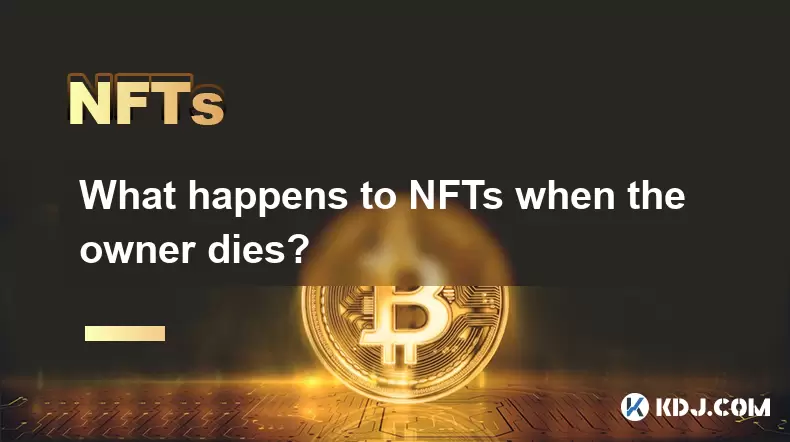
What happens to NFTs when the owner dies?
Jul 22,2025 at 02:43pm
Legal Ownership and Digital AssetsWhen an individual owns NFTs, the question of what happens to these assets upon their death is a pressing one. NFTs ...
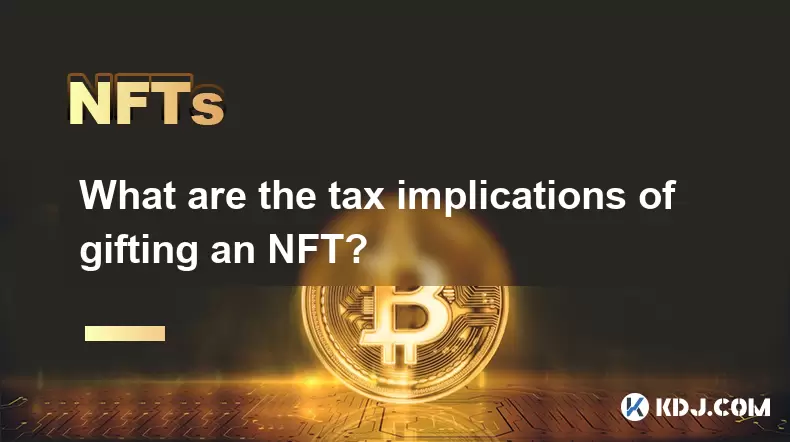
What are the tax implications of gifting an NFT?
Jul 19,2025 at 04:21am
Understanding the Basics of NFT GiftingGifting a Non-Fungible Token (NFT) involves transferring ownership from one individual to another without recei...
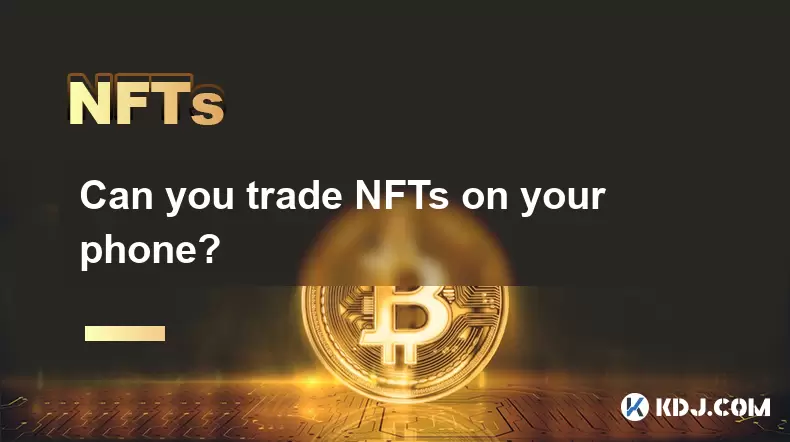
Can you trade NFTs on your phone?
Jul 18,2025 at 04:29am
Trading NFTs on Mobile DevicesYes, you can trade NFTs on your phone, and the process has become increasingly streamlined thanks to a variety of mobile...
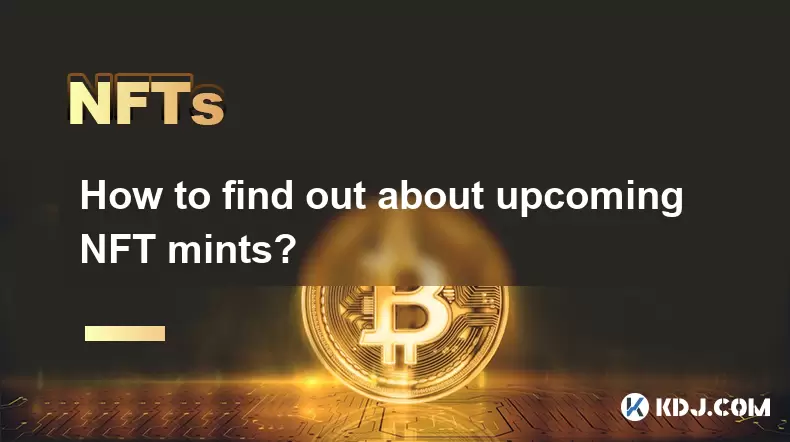
How to find out about upcoming NFT mints?
Jul 18,2025 at 11:50am
Exploring NFT Minting OpportunitiesUnderstanding the landscape of upcoming NFT mints is crucial for collectors, investors, and creators who wish to st...
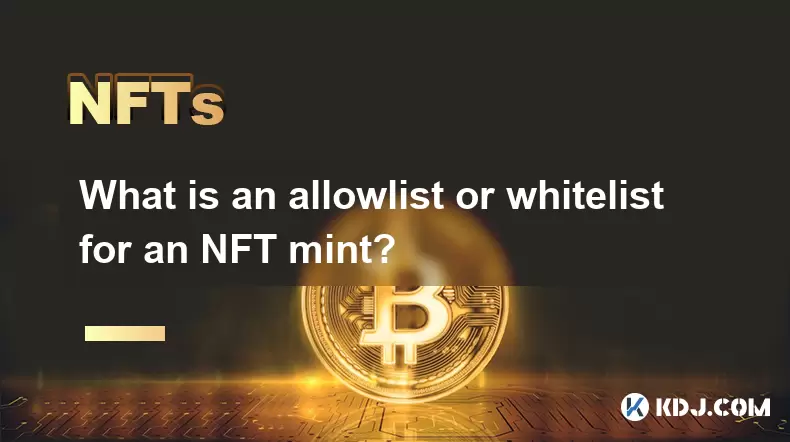
What is an allowlist or whitelist for an NFT mint?
Jul 20,2025 at 07:14pm
Understanding the Concept of an Allowlist for NFT MintingAn allowlist, also commonly referred to as a whitelist, is a mechanism used in the NFT mintin...

Is it possible to get a refund on an NFT?
Jul 21,2025 at 08:35pm
Understanding NFT Transactions and RefundsWhen you purchase an NFT (Non-Fungible Token), the transaction is typically recorded on a blockchain, making...

What happens to NFTs when the owner dies?
Jul 22,2025 at 02:43pm
Legal Ownership and Digital AssetsWhen an individual owns NFTs, the question of what happens to these assets upon their death is a pressing one. NFTs ...

What are the tax implications of gifting an NFT?
Jul 19,2025 at 04:21am
Understanding the Basics of NFT GiftingGifting a Non-Fungible Token (NFT) involves transferring ownership from one individual to another without recei...

Can you trade NFTs on your phone?
Jul 18,2025 at 04:29am
Trading NFTs on Mobile DevicesYes, you can trade NFTs on your phone, and the process has become increasingly streamlined thanks to a variety of mobile...

How to find out about upcoming NFT mints?
Jul 18,2025 at 11:50am
Exploring NFT Minting OpportunitiesUnderstanding the landscape of upcoming NFT mints is crucial for collectors, investors, and creators who wish to st...

What is an allowlist or whitelist for an NFT mint?
Jul 20,2025 at 07:14pm
Understanding the Concept of an Allowlist for NFT MintingAn allowlist, also commonly referred to as a whitelist, is a mechanism used in the NFT mintin...
See all articles

























































































